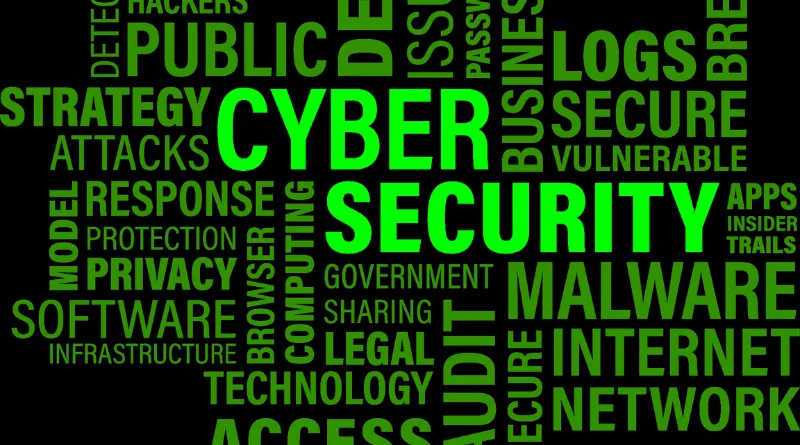Why Cyber-Security is the Most Important Now and What You Can Do About It?
Why Cyber-Security is the Most Important
Cyber-security has become a significant concern for businesses around the globe. Every day, cyber-attacks are becoming more prevalent. How do you stay safe from hackers?
Every year, cybercriminals steal billions of dollars from companies across the globe.
In 2017 alone, the cost of data breaches was $6 billion. And the number continues to rise. There are several ways to prevent cyber-attacks. First, you should constantly update your operating system and software. Second, to ensure that your network is secure and protected.
Third, you should regularly monitor suspicious activities on your network. Finally, you should implement strong passwords and encryption. But how will all this happen, and how can cybersecurity help? Let’s check it out.
What is Cybersecurity?
The field of cybersecurity involves protecting systems and services from malicious online actors, such as spammers, hackers, and cybercriminals. While specific cyber security components make it possible to launch an assault right away, most modern specialists are more concerned with figuring out how to safeguard all assets, from computers and cellphones to networks and databases, against attacks.
In the media, the phrase “cyber security” has become a catch-all for the process of preventing any type of cybercrime, from identity theft to the deployment of international digital weapons.
These classifications are accurate, but they fall short of describing the nature of cyber security for persons without a background in computer science or the digital sector.
Why is Cyber-Security Important?
The significance of cybersecurity is growing. Generally speaking, there is no indication that our civilization will become less dependent on technology. Identity theft-related data dumps are now openly announced on social media sites.
Many private data sets are now stored in cloud storage services such as Dropbox or Google Drive, including social security numbers, credit cards, and bank account numbers.
As a result of this criminal action, many people are facing computer attacks. The truth is that everyone uses computer systems daily, whether they are individuals, small businesses, or giant multinationals.
We now have a wide range of possible security risks that weren’t present a few decades ago when we combined this with the growth in cloud services, lax cloud service security, smartphones, and the Internet of Things (IoT). Even if the two fields of expertise are getting more comparable, we still need to comprehend the distinction between cybersecurity and information security.
Don’t Fall Victim to this No. 1 Misconception
Today, the globe is saturated with cybersecurity news. There is no escape from the “cybercrime outbreak,” whether it’s a media article about your favorite shop being attacked by hackers or your local council being the victim of ransomware.
There are still a concerning number of firms that do not consider themselves targets despite the current increase in cyberattacks. These organizations mistakenly believe they are unimportant or uninteresting to cybercriminals because they are too small, unheard of, or perhaps too secure to be attacked.
But this misunderstanding makes them simpler targets. Those businesses that are overconfident about their internet safety or fail to recognize themselves as targets let down their guard, which gives hackers more opportunities. What other security myths do businesses frequently hold, how can they endanger them, and most importantly, how can they be corrected?
Myth 1# We use a strong password for security.
Since covering what you cannot see is impossible, having everything covered is an illusion. However, this is the truth for most companies. Security becomes a highly complicated issue as more workers bring personal gadgets to work.
Additionally, organizations frequently have infrastructural flaws that they are unaware of. However, you may significantly enhance security by collaborating with a security firm that can scan your network for vulnerabilities and catalog all the devices linked to it.
Myth 2# Security is a practice, not a thing.
Many firms handle cybersecurity for compliance reasons. They purchase items to solve compliance concerns and checkboxes in the mistaken belief that doing so will make them secure. That is untrue. Ticking a compliance box is just one aspect of security; staff awareness training and fostering a cyber-security-aware culture should also be included.
Today, interested workers who open attachments or click on dangerous websites are to blame for most cyberattacks. Providing security solutions and training on security awareness is the best way to prevent attacks.
Myth 3# Cybercriminals do not intend to harm us.
Everyone is a target for hackers, first and foremost. Cybercriminals will still view you as a target regardless of how large or tiny you are or how much or little data you own. When speaking with potential consumers, this is a problem we frequently encounter. However, customers are often taken aback by the findings once we have performed an open-source background check.
We discover phony social media profiles where Bosses and businesses are impersonated, frequently posting harmful links. Online, much other evidence demonstrates that the organization has previously been attacked.
This proves that all businesses are targets. Cybercriminals often share fraudulent social media accounts and dangerous information through impersonation schemes.
5 Essential Tips to Protect Your Digital Life From Threats
Is your identity or personal information at risk of being stolen by hackers? If yes, then 5 must-do cyber security practices you should do.
In recent years, cybercrime has become a significant concern for everyone. Hackers steal data from companies and individuals and sell it to other criminals who use it for illegal activities.
Hackers often target websites and social media accounts to access sensitive information. They also try to trick users into giving them their login credentials. Here we share 5 tips to protect from cyber hackers to protect your system or internet attacks.
1. Use strong passwords
Make sure you use strong passwords. A hacker can easily access all your accounts if you use the same password across them. Make sure you change your security login continuously and don’t reuse passwords between sites.
2. Keep your software updated.
Keep your software updated. Hackers often target older software versions first, so ensure you update your operating system and anti-virus program regularly.
3. Enable two-factor authentication (2FA)
Enable 2FA if possible. Two-factor authentication adds an extra layer of security to your account by requiring you to enter a code sent via text message or phone call before logging in.
4. Be careful what apps you download.
Be careful about downloading apps from third-party stores. These apps may have been hacked and could give hackers access to your personal information.
5. Don’t click on links in emails.
Don’t click on links in email messages. Hackers sometimes send out phishing emails that look legitimate but lead to malicious websites where they steal your login credentials.
To Succeed in the Online World – Take Cybersecurity Seriously & Stay Properly Educated.
The internet age has made everything available globally, yet many businesses are concerned about safety. It is more than just creating a secure password to protect your machine. Before it’s too late to protect your data and essential information, become knowledgeable about cyberattacks.
Cybercrime has become a significant threat to businesses and individuals alike. The Internet has opened up new opportunities for criminals to steal data, defraud customers, or even cause damage to critical infrastructure.
A cyber attack occurs when someone uses computers to disrupt or gain access to information systems. These attacks can occur over the Internet, through email, or other electronic means. They can also involve viruses, worms, spyware, phishing scams, denial of service (DoS) attacks, or hacking.
It is essential to stay informed about cybersecurity threats and educate yourself on how to protect your information from them. Cybersecurity is the protection of information systems from unauthorized access or destruction.
This includes protecting data, networks, applications, and devices against attacks, viruses, malware, and other threats. This way, you’ll be able to identify potential risks before they happen.
Conclusion
Cybersecurity is a field that deals with ways to protect systems and services from malicious online actors, including spammers, hackers, and cybercriminals. While specific cyber security components are built to launch an assault right away, most modern specialists are more concerned with figuring out how to safeguard all assets, from computers and cellphones to networks and databases, against attacks.
These classifications are accurate, but they fall short of describing the entire nature of cyber security for persons without a background in the digital sector. Practice is crucial to learn more about system security and to stay up to date with it.













